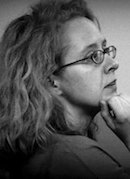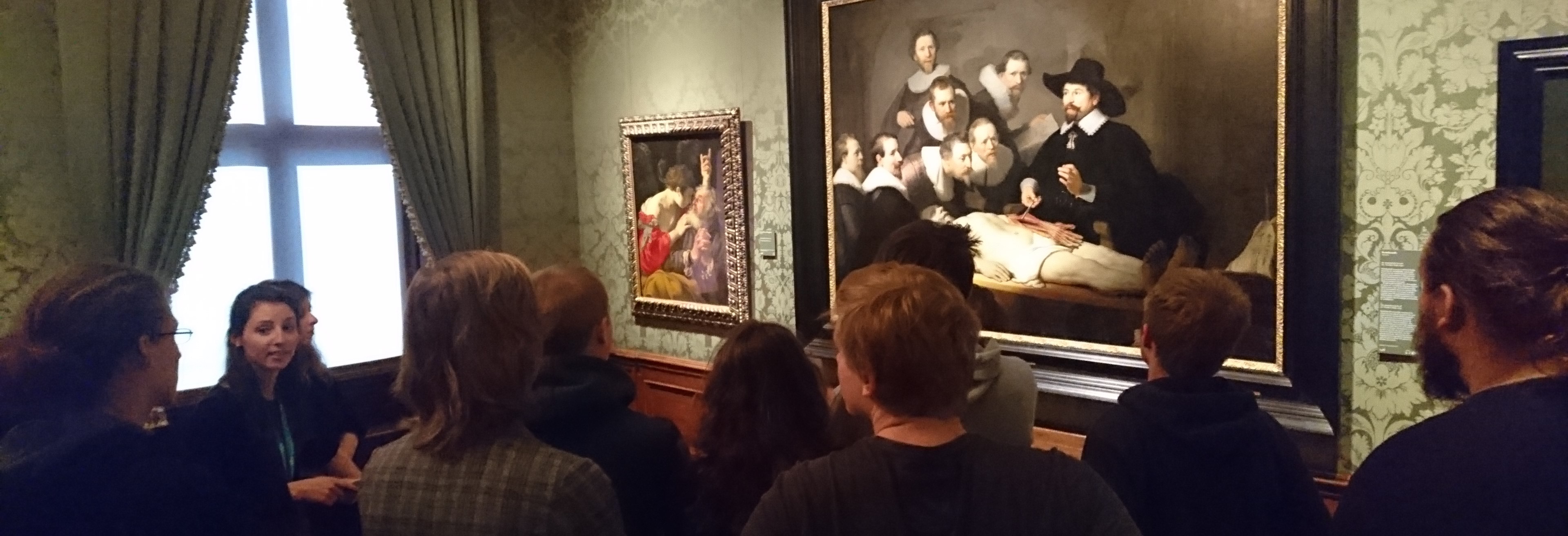Project of Polish-Belgian workshops and symposiums on urban history in the early modern period
The Department of Anthropological History organised scientific trips to Belgium in 2015, 2016 and 2017. Their participants were students attending Rafał Szmytka's (PhD) courses on microhistory in the modern age. The trips took place in close collaboration with Universiteit Antwerpen, with professor Guido Marnef in particular.
The trips complied with two main objectives: they developed knowledge about the history of the city acquired during the classes in Poland and implemented it in the direct context of the subject of deliberation. The students participated in the international symposium which took place at Universiteit Antwerpen and which was dedicated to the selected aspects of the urban history. The Belgian party was represented by students attending the course entitled Cultuurgeschiedenis: Nieuwe Tijd conducted by professor Guido Marnef.
The subject of the workshops and symposium on April 23, 2015 was Urban history: myths and cliches in the history of Antwerp in the times of Reformation and Catholic Revival, whereas on April 25, 2016 the subject of the discussion was iconoclasm and the so called year of miracles: Hedge preachings and the Beeldenstorm in popular culture. 450 anniversary of the Wonder Year. The last meeting which took place on April 27, 2017 focused on the issues of joyous entries to cities of the Duchy of Brabant: Joyous Entries to the cities of Brabant in the early modern period. Continuity or discontinuity of a medieval tradition?
The participation in the symposium requires from its participants earlier preparation: the students from Antwerp and Cracow receive the same literature, reference texts and the list of issues sufficiently in advance. Before joint workshops they build groups of several members which then prepare for the discussion within the framework of one of the “subtopics”. The symposium itself is divided into two parts: workshops, during which small Polish groups join their Belgian counterparts and discuss the issues within the scope of a given “subtopic”, and the open plenary session during which the task groups present the results of their works. It is also when the general discussion takes place.
The idea of collaboration with Universiteit Antwerpen is to create a joint Polish and Belgian course in the future within the scope of the history of culture and urban history, which would increase chances for students’ mobility. The trips have been successful so far. The participation in them and confrontation with Belgian friends during the symposium convinced both Polish and Belgian students about their own worth, encouraged them to take further challenges, and taught them to be curious about the world.
Moreover, during each trip there are meetings with experts in the fields related to the subject of the workshops organised. In 2015 in Erfgoedbibliotheek Hendrik Conscience (the department of Beligan national library) a special display of old prints took place. The display was organised by Steven Van Impe, the manager of the department of old prints and manuscripts. In 2016 the participants of the trip visited West Flanders and Westhoek, where in 1566 a blasphemous movement originated, and they also attended a lecture given by professor Guido Marnef, a specialist in the field of Reformation in the Low Countries. In 2017, within the framework of the journey to Belgium, a one-day trip to the Netherlands took place, the main objective of which was the meeting with Rosalie van Gulick, an art curator of the Dutch art and a member of CODART, who presented the Het Mauritshuis collection during her lecture. What is more, thanks to the courtesy of OCMW Antwerpen, Daniel Christiaens and Dirk Kint in particular, the participants of the trip could become familiar with the way of functioning of the social welfare system in the modern Antwerp and visit the exhibition in Het Maagdenhuis (former orphanage for girls) under the leadership of Dirk Kint. In such form the trips are consistent with the framework of the Renaissance peregrinatio academica – a journey that shapes personality and opens onto a multicultural nature of the Old Continent.
Together with professor Guido Marnef we wish to continue this collaboration and lead to two seminars annually: one in Belgium and the other one in Poland.
Objectives:
- increase of students’ mobility;
- overcoming stereotypical perception of the countries of Old and New Europe;
- learning of European history and culture as a common heritage;
- transfer of theoretical knowledge acquired at university to the urban space;
- improvement of skills of conducting a considerate discussion;
- improvement of individual interpersonal skills;
- gaining self-confidence;
- use of English in a considerate discussion.
Trip in numbers:
Number of participants: 10-15 participants;
Number of participants of the international workshops: 25-30 people;
Number of days: 5-7.
 Kierownik Zakładu Antropologii Historycznej.
Kierownik Zakładu Antropologii Historycznej.
 Bałkanista, ekspert w dziedzinie historii społeczno-kulturowej PRL i historii kulinarnej.
Bałkanista, ekspert w dziedzinie historii społeczno-kulturowej PRL i historii kulinarnej.
 Szef zespołu dydaktycznego antropologii historycznej. Specjalistka w zakresie historii przemocy, historii PRL.
Szef zespołu dydaktycznego antropologii historycznej. Specjalistka w zakresie historii przemocy, historii PRL.
 Badacz historii i kultury Niderlandów w epoce nowożytnej. Zajmuje się historią graficzną. historią srodowiskową oraz historią miasta.
Badacz historii i kultury Niderlandów w epoce nowożytnej. Zajmuje się historią graficzną. historią srodowiskową oraz historią miasta.
 Prowadzi badania w zakresie historii mówionej i historii pamięci I wojny światowej w Polsce i w Czechach.
Prowadzi badania w zakresie historii mówionej i historii pamięci I wojny światowej w Polsce i w Czechach.
 Zajmuje się kulturą osiemnastowiecznej Rzeczypospolitej.
Zajmuje się kulturą osiemnastowiecznej Rzeczypospolitej.


![polski [Beta] polski [Beta]](https://antropologia.historia.uj.edu.pl/uj-main-theme/images/spacer.png)